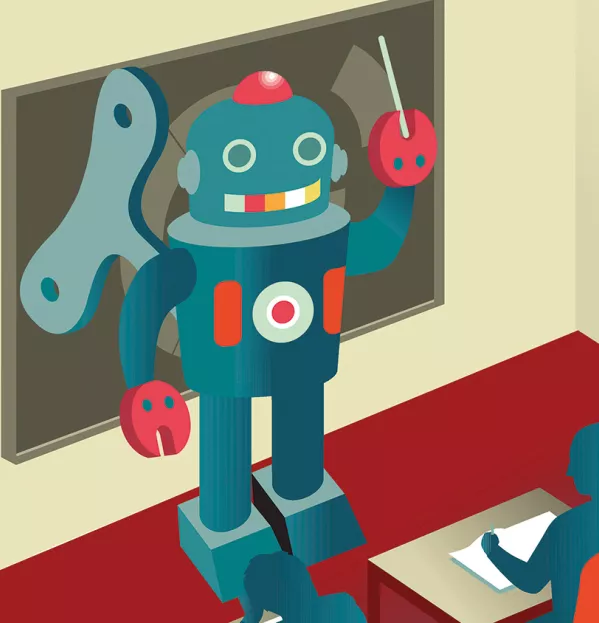When I recently heard a former headteacher of top Berkshire private school Wellington College predict that teachers will be replaced by robots in 10 years’ time, I wondered what type of android he thought was going to take control of the classroom. Was he imagining the Daleks that terrorised our childhoods restoring discipline, or a servile C-3PO at a pupil’s beck and call?
In fact, Sir Anthony Seldon saw the future as a Metal Mickey able to empathise with its charges through an ability to read brain patterns and facial expressions, adapting the pace and difficulty of the lesson with what it is reading on its circuits (“Machines ‘will replace teachers within 10 years’”, Tes, 11 September). These robots, being developed on the west coast of America, would enable each child to work at their own pace in a oneto-one environment.
While that sounds child-friendly, for school managers, other attractions would become apparent: being able to program what is taught to each child will guarantee that every part of the curriculum is covered. Other benefits would include a dissent-free workplace and no more days lost to sickness or ill-health. Teaching shortages would be solved immediately, too.
The promoters of teaching delivered by AI boast that the robot can “read” the pupil - although other experts would dispute that (“Teachers have the tool to beat the AI bots: empathy”, Tes Scotland, 9 February).
Social animals
It would not, however, allow for what is equally important in a learning relationship: the pupil being able to read the teacher.
Humans are social animals who generally have a desire to please others. For many learners, the motivation is not the long-term goal of getting a good job, getting into university or even passing exams. Rather, it can be hearing praise from their teacher.
I might not be the best person to judge, because I feel enraged by the insincerity of a “Sorry, I’m not in service” sign on a bus (you’re not sorry, you’re a bus), but I don’t think a metallic “Well done” is going to cut it as a motivational tool.
Neither is a child going to push themselves harder at the behest of a robot. What we call education is in a lot of ways persuasion: how to convince someone to do something they can’t be bothered doing is part of the learner-teacher relationship at the heart of education.
The new teaching machines may respond to the lighting up of brains, which corresponds to intellectual excitement, but teachers already do that. We read the responses of our classes, alter our methods to suit - and recognise when a face suddenly lights up that someone has “got it”.
Gordon Cairns is a teacher of English in Scotland
